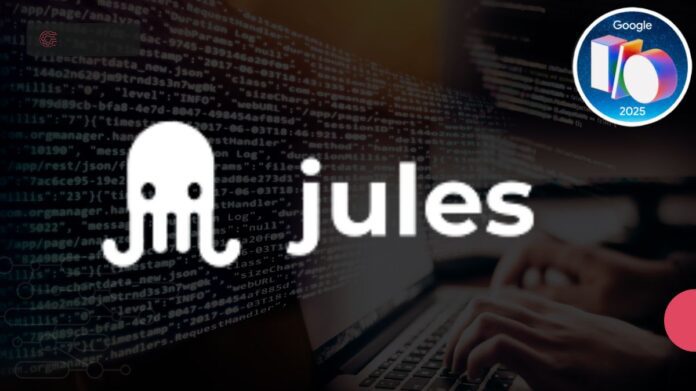Google Jules coding assistant
Google created Jules, an asynchronous agentic coding assistance. After being unveiled in Google Labs in December, it went into public beta on May 20, 2025, and may now be accessed by anybody in the world where the Gemini model is available without waiting.
Google Jules Agent‘ main function is to take care of the coding chores you don’t want to do, freeing up developers’ time to create the code they want to and engage in other pursuits. It is defined as an autonomous agent that reads your code, comprehends your intent, and completes tasks—not as a co-pilot or code-completion sidekick.
Here is what Jules does and how it operates:
- Asynchronous Operation: Jules functions asynchronously, allowing you to concentrate on other tasks as it runs in the background.
- Integration with Repositories: It easily connects to the repositories you already have. You can write a thorough prompt for Google Jules Agent by choosing your GitHub branch and repository. Using the “assign-to-jules” label in an issue, a future feature will enable task assignment directly in GitHub.
- Secure Cloud Environment: To fully comprehend the context of your project, Jules retrieves your repository and clones it to a secure Google Cloud virtual machine (VM). This cloud virtual machine allows for parallel processing and the handling of numerous requests at once.
- Makes use of Gemini 2.5 Pro: Google Jules Agent uses the most recent Gemini 2.5 Pro model to create a task plan. This provides it with access to sophisticated code reasoning skills, which allow it to quickly and accurately manage intricate, multi-file modifications and concurrent activities.
- Task Execution: Jules carries out a number of tasks, such as: ◦
- Bug fixing
- Writing tests
- Bumping dependency versions
- Fixing code (mentioning “Jed’s Code” specifically, possibly an internal reference)
- Developing new features
- Converting projects (making a Next.js project use the app directory, for example).
Google Jules Agent offers a clear workflow. When a task is finished, it displays its strategy, justification, and a difference of the modifications performed. These code updates are easy to review and approve. Jules shows you its plan before you make any changes. Connecting to GitHub, making a branch, initiating a task, approving Jules’ plan, providing input while it completes tasks, and overseeing activities from a panel are all part of the workflow.
Google Jules Agent features
It emphasize the following important features:
- GitHub Integration: Jules operates immediately within your GitHub workflow.
- User Steerability: To keep control over your code, you can make changes to the plan before, during, and after execution.
- Audio Summaries: Jules turns project history into a listenable contextual changelog by producing an audio description of the modifications or most recent commits.
- Uses real codebases: Google Jules Agent utilizes the entire context of your current project and doesn’t require a sandbox.
In terms of privacy, your data remains isolated within the execution environment, Jules is private by default, and it doesn’t train on your private code. Data is handled in compliance with Google’s privacy guidelines.
Limits and usage
Google Jules Agent is free to use during the public beta stage, but there are usage restrictions. After the beta phase is finished, pricing is anticipated to be released. You can begin using Jules and read through its documentation to learn about its usage restrictions.
This beta’s use data will assist us in:
- Boost system performance and task quality
- Recognize real-world processes
- Educate future pricing models
Task limits
The default restrictions for each user are as follows:
- Three tasks at once
- Five chores in total each day
- Five codecasts every day
Jules will alert you and stop new tasks from being created until your quota is reset if you attempt to go beyond these limitations.
When a limit is reached:
- There will be no new task button.
- You can keep evaluating or managing tasks that are already underway because a tooltip or error message will explain why.
- Feedback and task history remain unchanged.
Requesting higher limits
Requesting higher limits
You will ask to raise the restrictions if you work with a larger team or use Jules on a daily basis for development.
To ask for higher limits:
Complete the request form.


